History is tricky. It can be one-sided, deceitful, hurtful, it can get rewritten by those in power. It can be easily manipulated. But biblical history is even trickier to track, and it can also be used as a tool for manipulation. The original thoughts and ideas are prone to getting lost in translation, especially when the book is said to have been originally written about 2700 years ago. Apparently, some people believe that this was what happened with the word “homosexuality” in the Bible. Some say it wasn’t added to the Holy Book until 1946 and it’s causing quite a stir among some people. Scroll down to find out more.
More info: Tumblr
People on social media are pointing out the wrong translations in the Bible
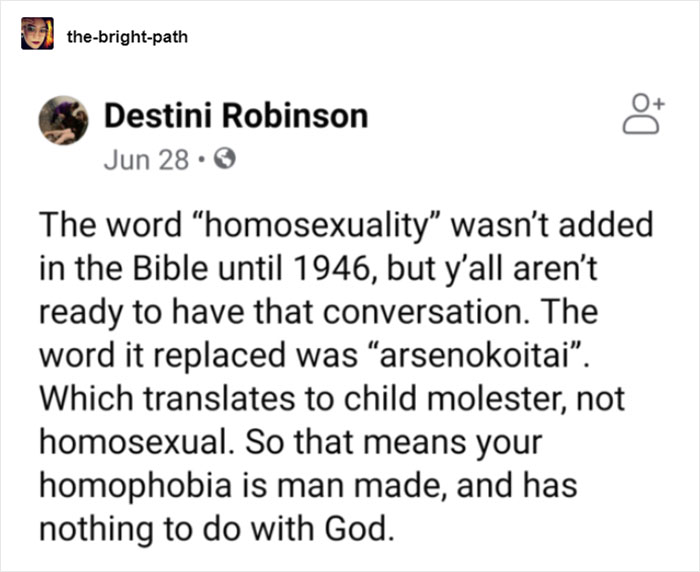
Image credits: sunshine-tattoo
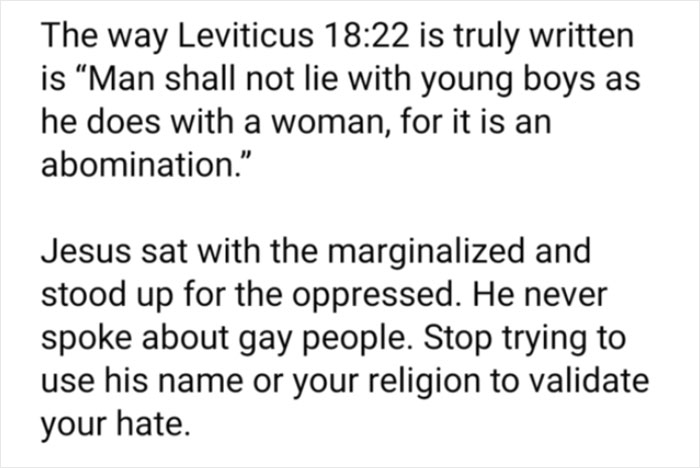
Image credits: sunshine-tattoo
These two social media users—one on Facebook and the other on Tumblr—are pointing out how the world “arsenokoitai” in the Bible was translated wrong. According to them, it actually translates to a “child molester,” not homosexual as recent translations indicate. “The way Leviticus 18:22 is truly written,” they explain, is: “Man shall not lie with young boys as he does with a woman, for it is an abomination.”
The Tumblr user under the username sunshine-tattoo reveals that they’re Jewish and that the topic is “incredibly important” to them. They go on to say that “Christians know very little about the culture that is found within the stories of the Old Testament.”
They say that homosexuality wasn’t mentioned in the Bible until the 20th century
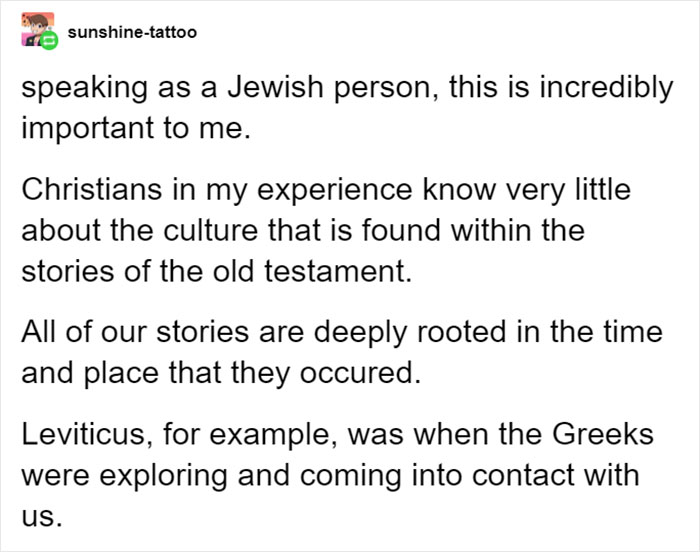
Image credits: sunshine-tattoo
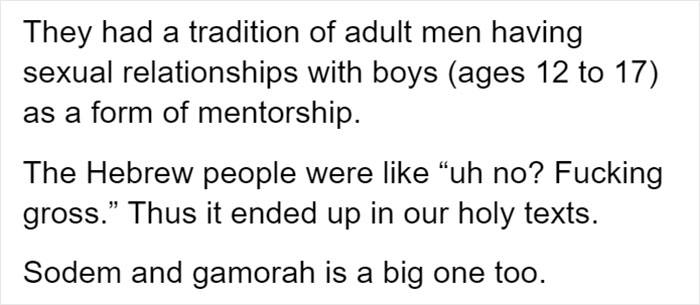
Image credits: www.tumblr.com

Image credits: sunshine-tattoo
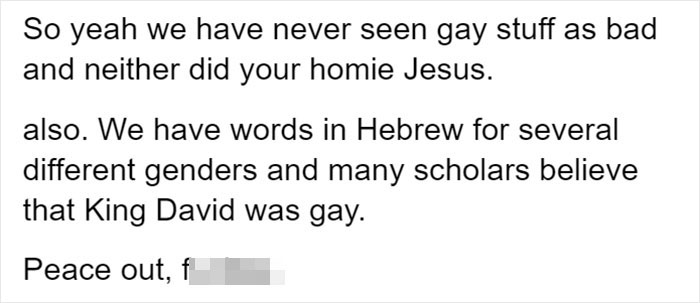
Image credits: sunshine-tattoo
In an interview for Forge Online, Ed Oxford—a graduate of Talbot School of Theology and a researcher in how the Bible has been weaponized against LGBTQ people—went into more detail about the translations of the Bible.
“I wanted to see how other cultures and translations treated the same verses when they were translated during the Reformation 500 years ago. So I started collecting old Bibles in French, German, Irish, Gaelic, Czechoslovakian, Polish… you name it,” Ed explained. “I had a German friend come back to town and I asked if he could help me with some passages in one of my German Bibles from the 1800s. So we went to Leviticus 18:22 and he’s translating it for me word for word. In the English where it says ‘Man shall not lie with man, for it is an abomination,’ the German version says ‘Man shall not lie with young boys as he does with a woman, for it is an abomination.’ I said, ‘What?! Are you sure?’ He said, ‘Yes!’ Then we went to Leviticus 20:13— same thing, ‘Young boys,'” he continued.
Ed goes on to explain how he met up with a friend who’s fluent in Swedish and Norwegian to ask her the same thing: “She’s going through it [the verses] carefully, and then her face comes up, ‘Do you know what this says?!’ and I said, ‘No! That’s why you are here!’ She said, ‘It says boy abusers, boy molesters.’ It turns out that the ancient world condoned and encouraged a system whereby young boys (8-12 years old) were coupled by older men. Ancient Greek documents show us how even parents utilized this abusive system to help their sons advance in society.” He concludes by saying that “for most of history, most translations thought these verses were obviously referring to the pederasty, not homosexuality!”
Here’s what people online thought










0 Yorumlar